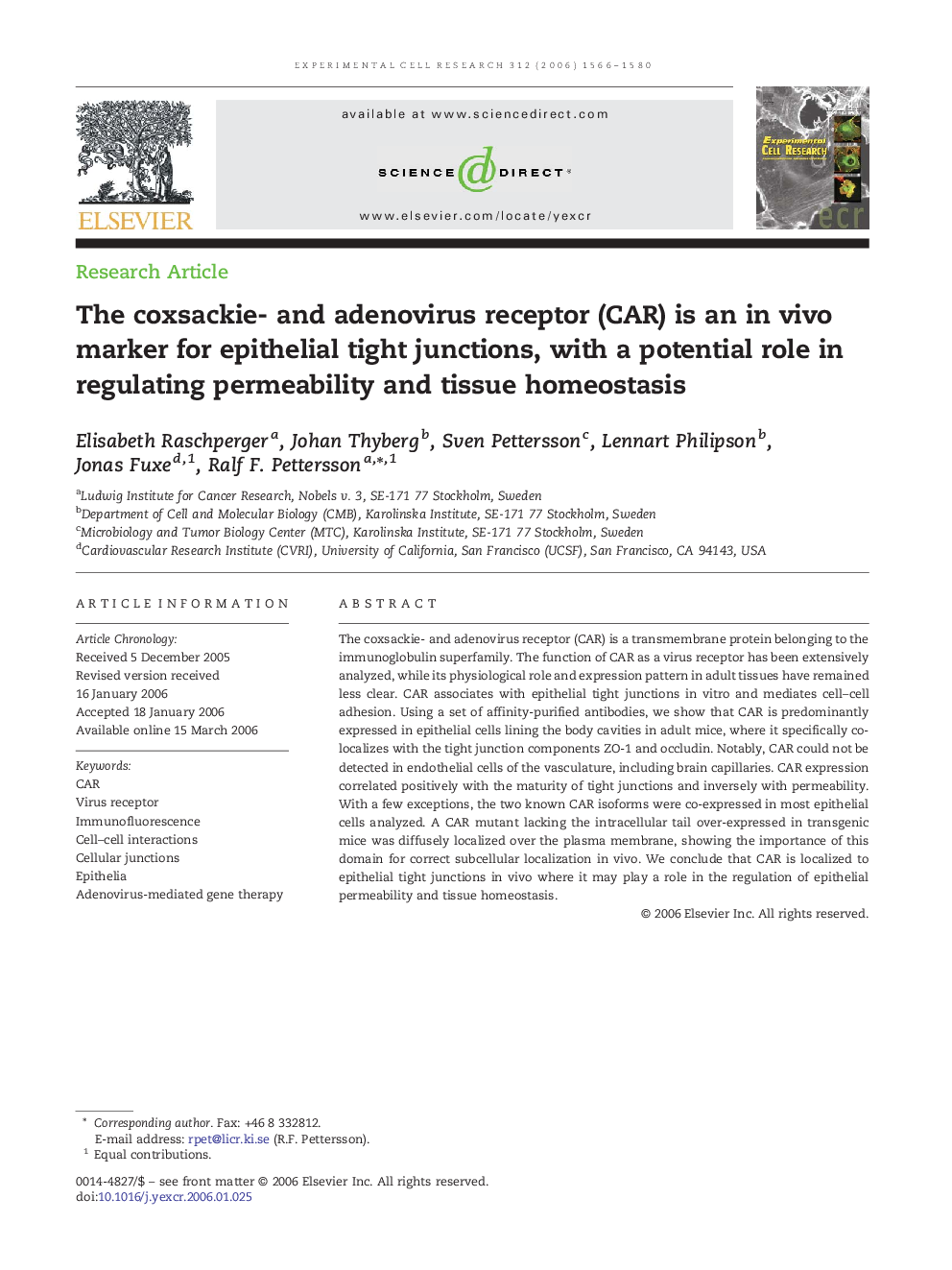| Article ID | Journal | Published Year | Pages | File Type |
|---|---|---|---|---|
| 2132927 | Experimental Cell Research | 2006 | 15 Pages |
The coxsackie- and adenovirus receptor (CAR) is a transmembrane protein belonging to the immunoglobulin superfamily. The function of CAR as a virus receptor has been extensively analyzed, while its physiological role and expression pattern in adult tissues have remained less clear. CAR associates with epithelial tight junctions in vitro and mediates cell–cell adhesion. Using a set of affinity-purified antibodies, we show that CAR is predominantly expressed in epithelial cells lining the body cavities in adult mice, where it specifically co-localizes with the tight junction components ZO-1 and occludin. Notably, CAR could not be detected in endothelial cells of the vasculature, including brain capillaries. CAR expression correlated positively with the maturity of tight junctions and inversely with permeability. With a few exceptions, the two known CAR isoforms were co-expressed in most epithelial cells analyzed. A CAR mutant lacking the intracellular tail over-expressed in transgenic mice was diffusely localized over the plasma membrane, showing the importance of this domain for correct subcellular localization in vivo. We conclude that CAR is localized to epithelial tight junctions in vivo where it may play a role in the regulation of epithelial permeability and tissue homeostasis.
